View profiles of the College of Business and Law’s top academics specialising in gender equality and inclusion issues and gain an understanding of how the College’s research is making a real impact on society, industry and government. See list of researchers (in alpha order) below.
Researchers

Dr Aida Ghalebeigi is a feminist scholar passionate about workplace gender equality. She has established and led the Gender Matters research theme in the Global Transport and Logistics Research Group. She has extensive experience in undertaking industry-related research with a core focus on workplace gender equality in the Transport and Logistics industry, which is historically characterised by male dominance. She has built strong industry and government collaborations with great potential to influence policy and practice in the private and public sectors. Recently, she led a research project funded by the Commission for Gender Equality in Public Sector to ‘Assess the progress of implementing the Gender Equality Act 2020’ within the Victoria Department of Transport and Major Transport Infrastructure Authority. For more information on her projects visit the GTL themes web page or to contact her, visit Dr Aida Ghalebeigi's profile web page.

Dr Alrence Halibas is a member of the SBM academic women’s group that promotes gender equality in the School and encourages women to take active roles in teaching, research, and service. During her capacity as the Senior Program Manager for Digital Marketing, Alrence empowered her female colleagues to pursue higher aspirations in their careers and has been a strong supporter of their professional and personal growth. Currently, she mentors SBM women academics to achieve a HEA fellowship, prepares them for managerial roles, and highlights their achievements at every opportune event. To contact her, visit Dr Alrence Halibas's profile web page.
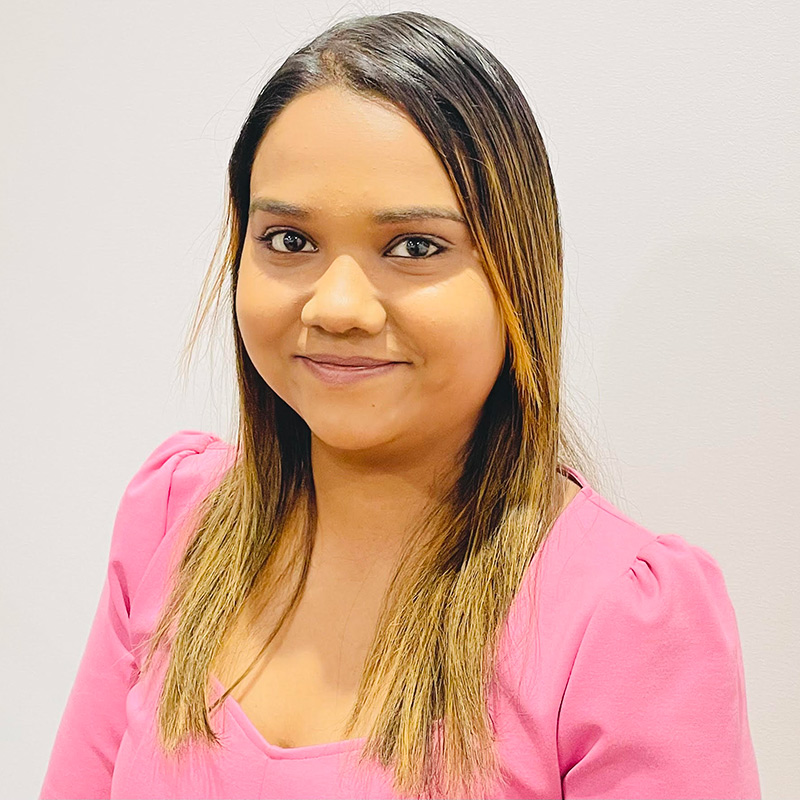
Dr Ama Samarasinghe is a researcher and a lecturer enthusiastic about gender equality. She has extensive experience in conducting research in the field of finance, which is traditionally specified as being a male-dominated field. Some of her current research work includes exploring the role of social capital, gender diversity and women leadership in the banking sector. Being a female early career researcher comes with its fair share of challenges and she firmly believes that having a strong support network in the workplace is crucial to navigate through those challenges. Being an early career academic herself, Ama is enthusiastic to network with, offer support and collaborate with other female academics. She is a member of diverse committees focused on women’s empowerment including Women in quantitative research, Women in Banking and Finance, Female academics global and RMIT Women’s Researchers’ Network. To contact her, visit Dr Ama Samarasinghe's profile web page.

Associate Professor Angela Dobele is the longest-serving Women Researchers' Network Steering Committee Chair (2018-2020) and has been a committed peer coach, mentor and sponsor for the past 10 years. Her leadership experiences seek to develop supportive engagement opportunities by providing avenues for colleagues to come together for inter-teaching and experience sharing. She is also firmly committed to creating professional development programs, communications strategies for regular information and updates, and providing avenues for multiple forms of participation. Angela’s research into knowledge translation and practice was encapsulated in multiple Gender Lensing and Sticky Floors, and career building sessions offered at RMIT, including RMIT Engaging for Impact, RMIT Library Seminar Series and the annual WRN symposium, and internationally, including EduLearn International Conference. She is committed to advocacy and champion creation to increase awareness and promote equity and inclusion. Her previous policy recommendations, in conjunction with research conducted with Professors Lisa Farrell and Matt Duckham, provided a Gender Equity Library for RMIT Schools, and the recommendation for an inclusion-lensed dashboard (exemplifying best practice and providing a safe-space resource for staff and students, and an indicator for potential incoming staff and students to aid in decision-making). Angela was part of the research team that produced the impact reports on the COVID-19 pandemic for RMIT women researchers to support equitable policies and interventions at this institution. Her research includes multiple publications in the area of academic career progression and promotion. To contact her, visit Associate Professor Angela Dobele's profile web page. Google Scholar: ARDobele

Dr Ankita Mishra is a Senior Lecturer in the School of Economics, Finance and Marketing and one of the core members of the Centre for International Development (CID). Her primary research area is applied Development Economics. She is the CID lead researcher on the theme of gender equality and
child wellbeing. She specialises on understanding the cultural dimension of gender inequalities. Dr. Mishra has extensively researched on measurement of social exclusion, role of gender norms in shaping gender related biases, role of factors such as crime and weather in driving gender gaps in labour force participation and employment outcomes and effectiveness of women’s empowerment programs, such as financial inclusion initiatives. She is currently working on a project Sri Lanka Australia: Building Better Networks for Gendered Economic Development Program in partnership with The Australian APEC Study Centre and members of CID. The project is funded by the Australian Department of Foreign Affairs. Her research is mainly centred on Asia and Africa including countries such as India, Vietnam, Ethiopia, Ghana, and Sri Lanka. To contact her, visit Dr Ankita Mishra's profile web page.

Professor Banita Bissoondoyal-Bheenick is an internationally recognised researcher in the field of financial markets and institutions and an experienced academic with nearly 20 years of extensive educational experience. Her work on gender equity includes, works on gender aspect and financial welding of women superannuation in her research including expert comments on gender and bias in Superannuation system in recent years. As a strong advocate for gender equity and inclusion, Banita has contributed to several committees in her career by being part of the Monash Business School Equity and Diversity Committee, where she worked very closely with Athena Swan. In her current role at RMIT, Banita, chairs the College of Business and Law Gender Equity and Inclusion Reference Group, was involved in the development of the Careers Advancement for Women Program (CAWP), is the member of the steering committee of the Women Research Network, where she works in the interest of staff to ensure that we deliver the best outcome to create a positive work environment for staff and, continues to identify and address the barriers to women’s inclusion and progression at the University. With her knowledge of investment and credit risk assessment as another major area of research, she is currently member of the RMIT Philanthropic Investment Committee. To contact her, visit Prof Banita Bissoondoyal-Bheenick's profile web page.

Dr Elizabeth Shi is an expert in employment law, discrimination, diversity and inclusion. Her research focuses on employment law and discrimination law protections for vulnerable workers and gender equality. She has worked with trade unions and NGOs to investigate gender equality outcomes. She has also co-led the Law Institute of Victoria Employment and Industrial Relations Committee to provide influential submissions to the Australian Human Rights Commission, Fair Work Commission, State and Federal Parliaments. Dr Shi is the labour and supply chain theme lead, at RMIT's Business and Human Rights Centre. Dr Shi has published her research in highly regarded A and A* ranked journals including UNSW Law Journal, Adelaide Law Review and the Australian Journal of Labour Law. Her publications in highly ranked journals have a high impact and have been cited by other leading scholars in Australia and overseas. To contact her, visit Dr Elizabeth Shi's profile web page.

Dr Greeni Maheshwari gained a doctorate in business administration (DBA) in Global Business and Leadership from California, USA. She is teaching and coordinating quantitative courses such as Business Statistics, Quantitative Analysis and Basic Econometrics. Her research interest lies in gender studies such as women leadership, women entrepreneurship and she has published papers on these topics and also presented at conferences. She has also secured internal research grant for the topic related to barriers and enablers for women leadership in higher education, Vietnam. Her other areas of research are leadership, educational topics, entrepreneurship, SMEs and finance-related topics. To contact her, visit Dr Greeni Maheshwari's profile web page.
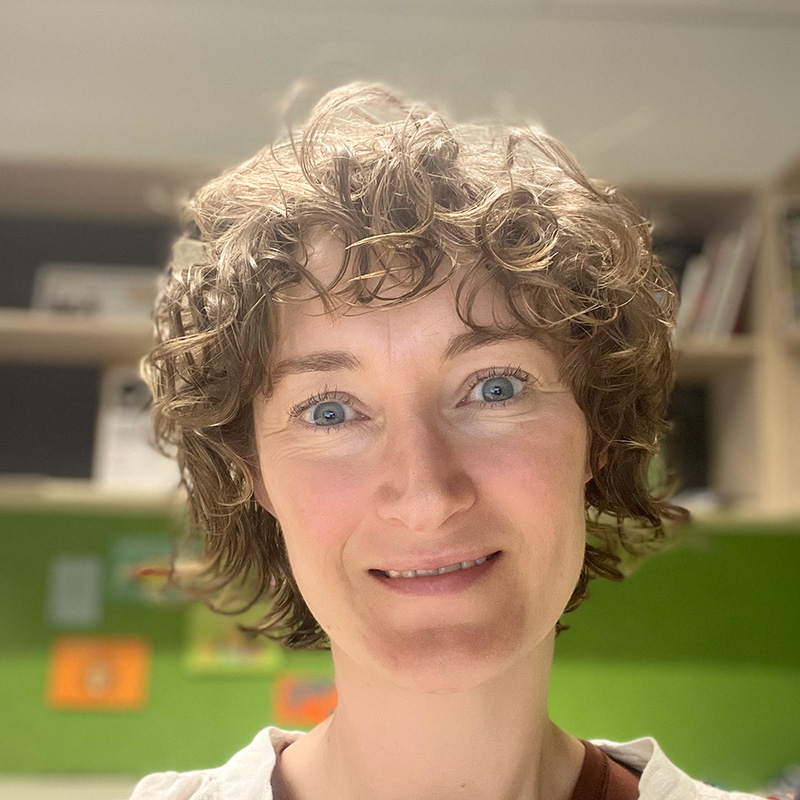
Dr Janneke Blijlevens’ interdisciplinary approach to research and education all focus on having a positive social impact in the world. Her research centres around themes of cultural inclusion, gender inclusive design and marketing solutions, and consumer empowerment in financial decision making. She specifically focuses on the design of behavioural interventions that help make people’s lives, and society at large, a bit better by empowering them to make better decisions for themselves, to encourage intercultural collaboration, and to offer multiple gender inclusive solutions. As the manager for the Bachelor of Business major in Social Impact, her passion is in educating students to become responsible business practitioners who know how to have a positive social impact in society. She is a frequently asked contributor on gender and diversity panels in the academy as well as industry contexts. To contact her, visit Dr Janneke Blijlevens’ profile web page.

Dr Jillian Cavanagh’s research is in Human Resource Management and Healthcare Management (HM), focused on the wellbeing of workers and groups of vulnerable people. Jillian is Co-Leader of the School of Management Health and Wellbeing at Work Research Group. She is nationally and internationally known as one of very few female non-Indigenous researchers in Australia to secure Federally funded projects ($159k), and work with Aboriginal and Torres Strait Islander Indigenous men’s groups to report on their healthcare management. She is also an authority in HRM and HM of workers with disability and nurses in the aged care sector. Jillian’s contribution to the academy comprises 50 refereed journal articles/commissioned reports and nine book chapters predominantly on the health and wellbeing of workers and vulnerable communities. Jillian has published in highly ranked journals such as the Journal of Business Ethics (A/Q1) with a 2020 impact factor of 6.430, one of the 50 journals used by the Financial Times to compile prestigious Business School research work. She has published in the Journal of Aboriginal Issues. Jillian is an Associate Editor of the Asia Pacific Journal of Human Resources and on the Editorial Board of The International Journal of Human Resource Management. To contact her, visit Dr Jillian Cavanagh’s profile web page.
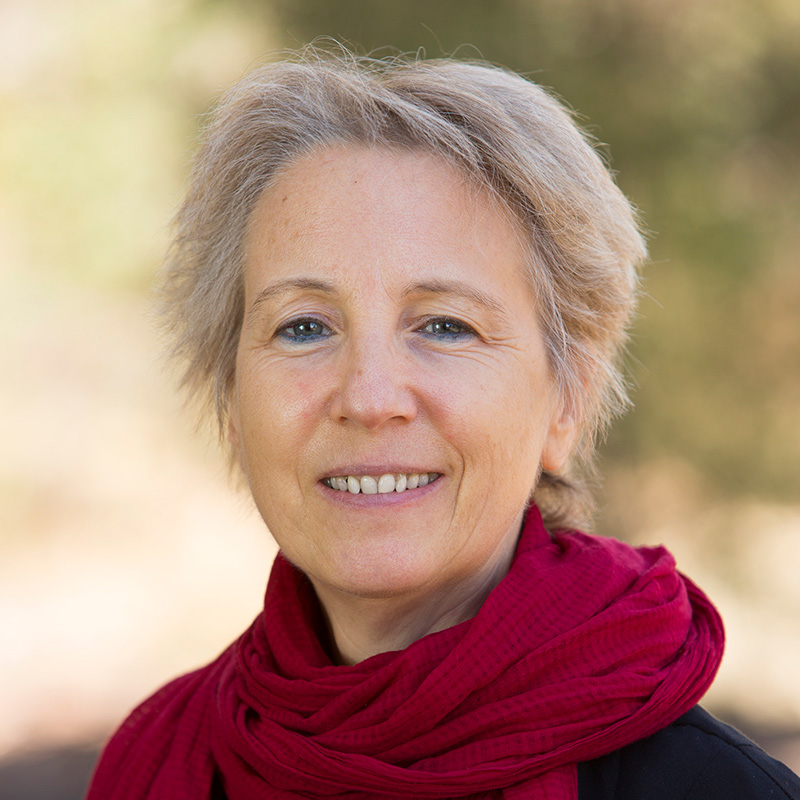
Dr Kate Grosser has been engaged in gender equality research and national and international policy making and practice for many years. Her research explores how we advance gender equality in organizations and societies in particular through feminist perspectives on CSR and sustainability. For example, she was advisor on ‘integrating a gender perspective’ to the United Nations Special Representative on Human Rights and Transnational Corporations and Other Business Enterprises, and the UN Working Group on Business and Human Rights, co-hosting the UN Australian Consultation on Gender, Business and Human Rights (2018), and the 2021 international gender consultation to inform the UN next decade roadmap for business and human rights. Kate co-founded RMIT’s Business and Human Rights Centre (BHRIGHT), leading the gender theme therein. She has published widely in leading academic journals and sits on the Distinguished Advisory Board at Gender, Work & Organization. To contact her, visit Dr Kate Grosser's profile web page.

Dr Lauren Gurrieri is an internationally recognised gender and marketing scholar who advances knowledge in and progress towards gender equality. Her research broadly examines gender, consumption and the marketplace, with a focus on gender-based inequalities in consumer and digital cultures. She is an Advisory Board Member for GENMAC (Gender, Markets and Consumers), a member of the UNESCO Unitwin Network on Gender, Media and ICTs, a reference group member of ShEqual and The Invisible Woman Project (Just Gold and the City of Melbourne) and has presented on gender equality issues to local and State Governments, not for profit and community organisations as well as the general public. Lauren is a regular contributor to the Australian media on issues related to gender, marketing and consumer culture and sits on the College of Business and Law Gender Equity and Inclusion Reference Group at RMIT University. To contact her, visit the Consumer Culture Insights Group member web page and Dr Lauren Gurrieri's profile web page.

Dr Lena Wang has applied her expertise in organisational psychology in studying diversity and inclusion, understanding the psychological experiences of individuals with marginalised identities or in disadvantaged positions, and supporting organisations to create more inclusive environment for these individuals. Her research projects on diversity and inclusion include: supporting the employment of individuals with lived experience of mental health challenges; understanding the identities, experiences and wellbeing of LGBTQIA+ individuals; progressing towards gender equality particularly in male-dominated sectors. Lena has also conducted research in understanding the vocational experiences of migrants, as well as understanding the functioning of age-diverse teams. To contact her, visit Dr Lena Wang's profile web page.
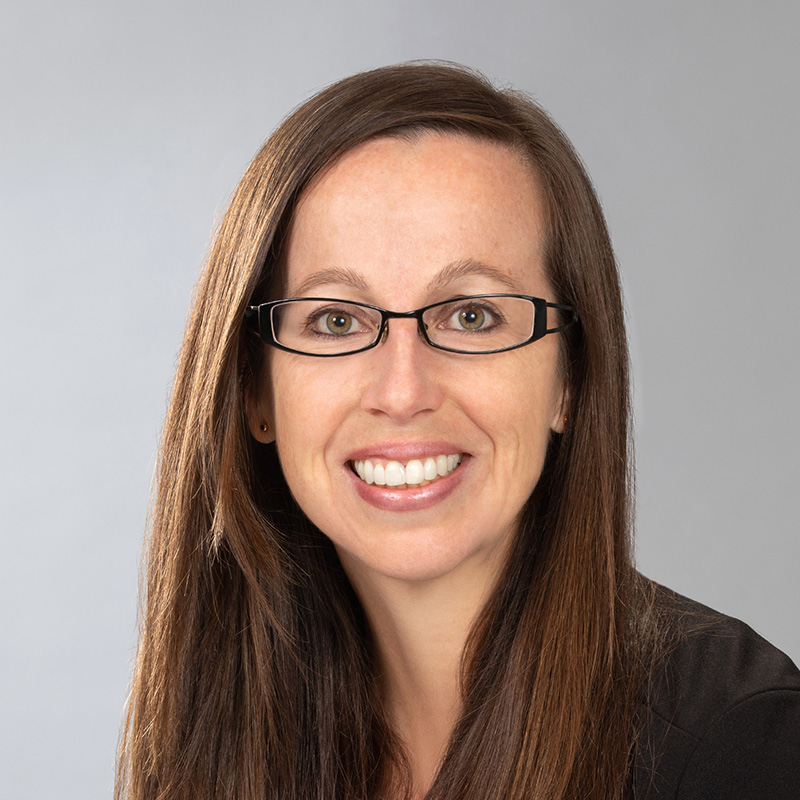
Dr Leonora Risse is an economist who specialises in gender equality. She is a Research Fellow with the Women’s Leadership Institute Australia and spent time in residence at Harvard University as a Research Fellow with the Women and Public Policy Program. Leonora is a co-founder of the Women in Economics Network (WEN) in Australia and serves as the WEN National Chair. Leonora previously served as a Senior Research Economist for the Productivity Commission and is currently appointed as a Senior Lecturer in Economics at RMIT. Leonora’s research focuses on understanding gender gaps in economic opportunities and outcomes, including the gender pay gap, women’s under-representation in leadership, and the influence of societal norms. She engages regularly with government, industry and community groups on evidence-based strategies to close gender gaps, applying a ‘gender lens’ to policy design, and navigating resistance to gender equality initiatives. To contact her, visit Leonora's website.
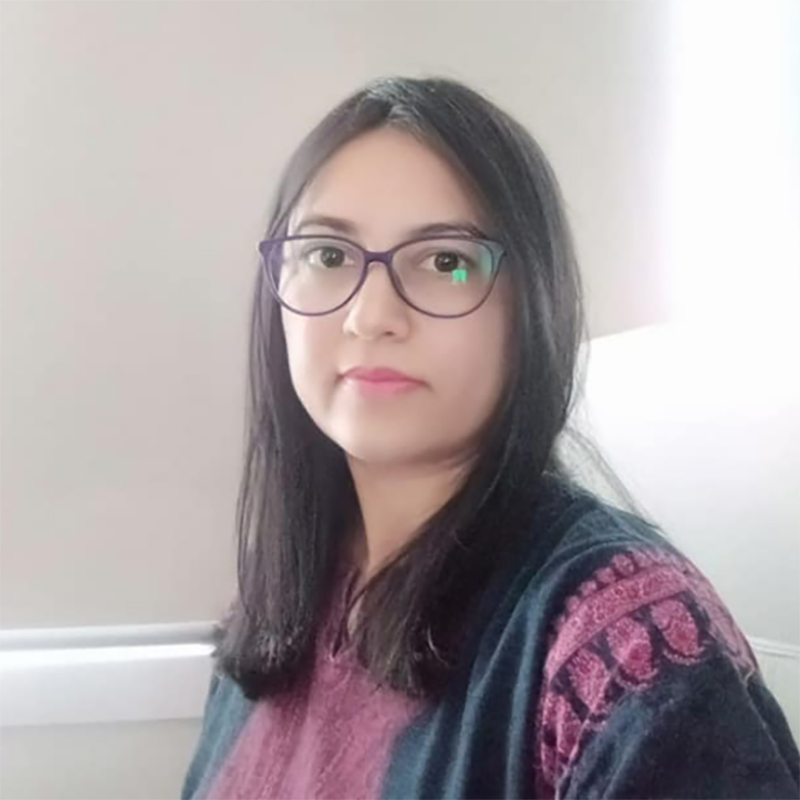
Dr Saima Ahmad’s research focuses on cultivating bullying-free, healthy and inclusive work environments for employees and workers to thrive. Her scholarly work provides evidence-based insights to address interpersonal and social problems at work and to promote relational dignity in the workplace. She has made prominent contributions to knowledge on managing on a specific form of discriminatory behaviour known as workplace bullying. Her research offers a new perspective to manage bullying at work by applying a positive business ethics framework. She makes a strong commitment to RMIT’s research environment through her active involvement in the HDR program at the College of Business and Law, Business and Human Rights Centre, and by bringing new partnerships and collaborations to RMIT. Saima serves on the editorial board of the European Management Journal and the advisory committee of Australasian Business Ethics Network. To contact her, visit Dr Saima Ahmad’s profile web page.

Dr Serene Ho’s research on the urban poor intersects with gender in various ways. In her research on slum formalisation in India, she explores the implications of using new technologies for mapping and documenting land rights for vulnerable groups, with a focus on gendered experiences of technology use and tenure security outcomes for women. She also conducts research on the impacts of climate change on food security in Solomon Islands where she has adopted traditional methods to explore women's experiences of home gardening in informal settlements in the capital city, Honiara. Serene is currently also the Deputy Chair of RMIT’s Women Researchers’ Network which advocates for gender equity across a range of institutional policies and practices in the university. To contact her, please visit Dr Serene Ho's profile web page.

Associate Professor Shelley Marshall is the Director of the RMIT University Business and Human Rights Centre, an Australian Research Council DECRA Fellow and an RMIT University Vice Chancellors Senior Fellow. Shelley has been a thought leader in the areas of ethical leadership, corporate accountability, modern slavery, and business and human rights for 25 years, with a focus on improving the labour conditions of vulnerable women workers. In 2001, she left legal practice to join the team setting up Ethical Clothing Australia. She then joined academia in 2004. Her research on how to improve the conditions of informal women workers has informed labour law reform in several countries and the policies of the International Labour Organisation. For example, over 2018-19 she made frequent trips to Thailand to advise the Thai Ministry of Labour on how to enforce labour laws for vulnerable workers. Shelley’s 70 publications, including journal articles, books, edited collections and white papers, report the results of rigorous research methods. Her work has attracted over $3 million in competitive grants over her career. Shelley is a passionate supervisor of doctoral students and mentor of women who are early in their careers. To contact her, visit Associate Professor Shelley Marshall's profile web page, BHRIGHT website, Shelley's personal website and Corporate Accountability Research.

Dr. Shea Fan studies how cultural and ethnic identities affect workplace behaviours and what organisations, managers and human resource policies can do to create an inclusive environment for culturally diverse employees. For example, she reveals that, in a culturally diverse work environment, ethnic minor employees suffer from ethnicity-based implicit bias because people tend to impose an identity based on their appearance and ignore how they actually view themselves. She identified how minority employees could overcome the negative impact of implicit biases through active identity negotiations. She also researches the issue of loneliness faced by migrant employees and explores solutions to facilitate their social integration and improve their well-being. Furthermore, Dr. Fan advocates for bicultural/multicultural employees and urges organisations and society to acknowledge the values that they can generate and care for their wellbeing. To contact her, visit Dr. Shea Fan's profile web page.
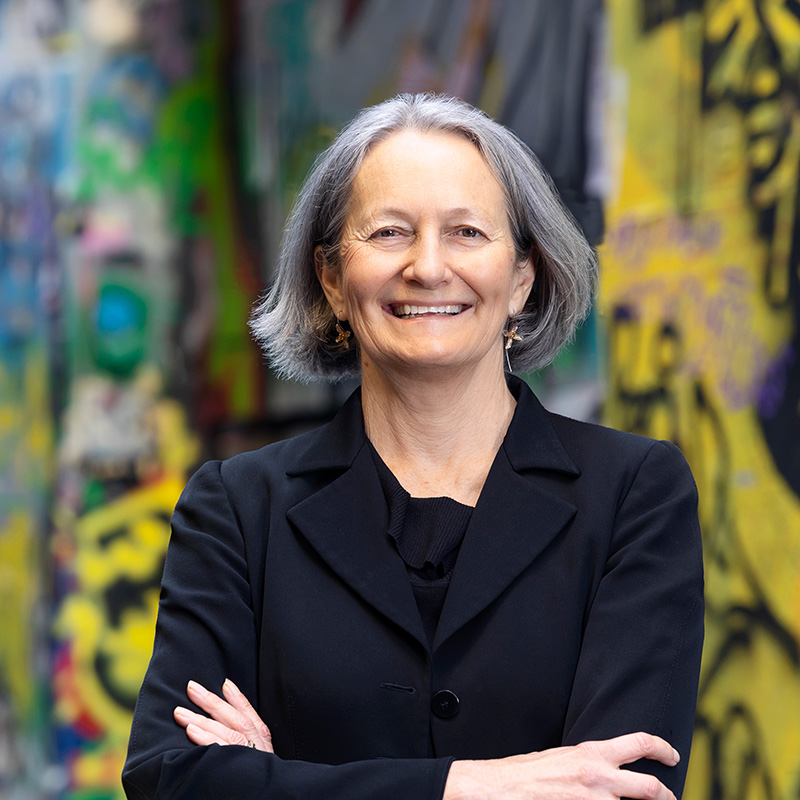
Professor Tracy Taylor is currently the Associate Deputy Vice-Chancellor Research and Innovation in the College of Business and Law. She is passionate about the rights of all people to fully participate in community life. Tracy’s scholarship, teaching and engagement work has centred on developing inclusive organisational approaches for diversity groups with a focus on intersectionality aspects, such as involving women from culturally and linguistically diverse backgrounds. Tracy’s work is characterised by an evidence-based approach to changing practice in the business, government and not-for-profit sectors. Tracy is currently researching the development of women’s professional sport careers (ARC Discovery Grant), women and girls with disability in sport, and the inclusion of newly arrived migrants in community sport. Tracy also has a long history of involvement in gender-based advocacy in education, community life, and sport and physical activity. Tracy has held a variety of volunteer and sport board positions in Australia and internationally. To contact her, visit Professor Tracy Taylor's profile web page.

Dr Victor Arity started teaching at RMIT since 2012. Viktor’s research interests include designing and implementing serious (educational) games for business education. Viktor’s lived experience of being under-represented lays the base of Viktor’s expertise in working on gender equity and inclusivity. Viktor is an advocate for equal career opportunities for women academics. Viktor’s current Associate Lecturer position gives Viktor a perspective on career advancements and provides a representation of early career academics. Viktor is also an active member of the College of Business and Law Gender Equity and Inclusion Reference Group, in which Viktor aims to use research-based evidence to shape the policy in the College, which could further enhance and advance women academics’ careers. Viktor’s ultimate goal is to promote equal career opportunities for all genders. To contact him, visit Dr Victor Arity's profile web page.
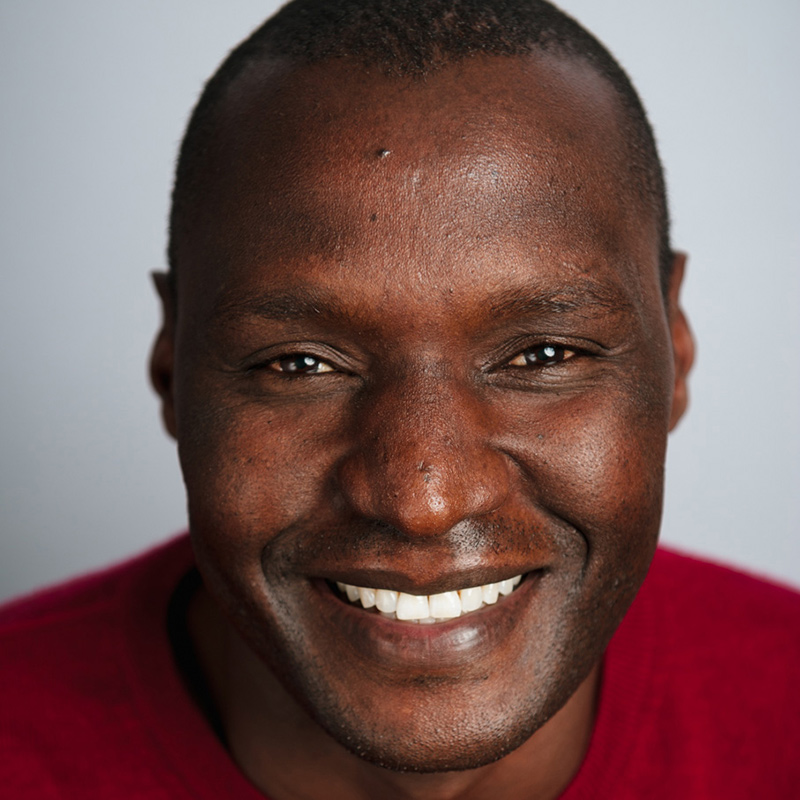
Professor Victor Gekara is a Professor at RMIT's College of Business and Law. His research is diversely located across Sociology of work, Political Economy, and Management. Over the past 15 years he has developed and led several academic and industry research projects on a wide range of topics around industrial transformation and future of work. On the broad area of gender, Prof Gekara has examined the prevailing theorisation of workplace gender inequalities and the key impediments to gender inclusivity, particularly in traditionally male dominated industries. To contact him, visit Prof Victor Gekara's profile web page.